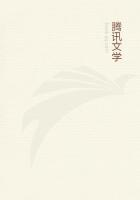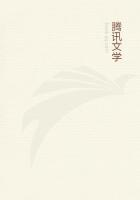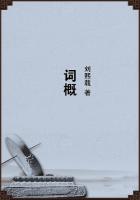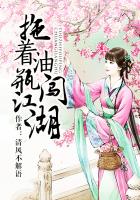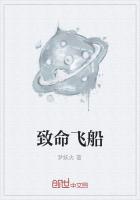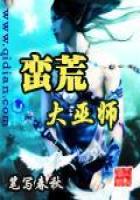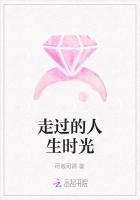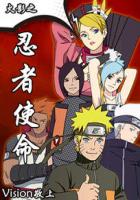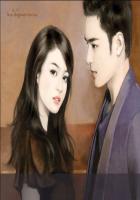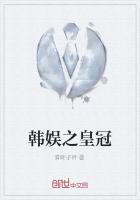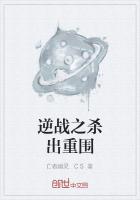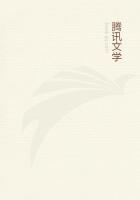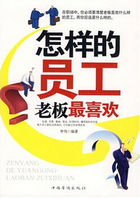A poet is so separate from his poem that he himself speaks of it as a little thing he has "thrown off." Even in giving it forth he has flung it away. This principle that all creation and procreation is a breaking off is at least as consistent through the cosmos as the evolutionary principle that all growth is a branching out. A woman loses a child even in having a child. All creation is separation.
Birth is as solemn a parting as death.
It was the prime philosophic principle of Christianity that this divorce in the divine act of making (such as severs the poet from the poem or the mother from the new-born child) was the true description of the act whereby the absolute energy made the world.
According to most philosophers, God in making the world enslaved it.
According to Christianity, in making it, He set it free.
God had written, not so much a poem, but rather a play; a play he had planned as perfect, but which had necessarily been left to human actors and stage-managers, who had since made a great mess of it.
I will discuss the truth of this theorem later. Here I have only to point out with what a startling smoothness it passed the dilemma we have discussed in this chapter. In this way at least one could be both happy and indignant without degrading one's self to be either a pessimist or an optimist. On this system one could fight all the forces of existence without deserting the flag of existence.
One could be at peace with the universe and yet be at war with the world. St. George could still fight the dragon, however big the monster bulked in the cosmos, though he were bigger than the mighty cities or bigger than the everlasting hills. If he were as big as the world he could yet be killed in the name of the world.
St. George had not to consider any obvious odds or proportions in the scale of things, but only the original secret of their design.
He can shake his sword at the dragon, even if it is everything; even if the empty heavens over his head are only the huge arch of its open jaws.
And then followed an experience impossible to describe.
It was as if I had been blundering about since my birth with two huge and unmanageable machines, of different shapes and without apparent connection--the world and the Christian tradition.
I had found this hole in the world: the fact that one must somehow find a way of loving the world without trusting it; somehow one must love the world without being worldly. I found this projecting feature of Christian theology, like a sort of hard spike, the dogmatic insistence that God was personal, and had made a world separate from Himself. The spike of dogma fitted exactly into the hole in the world--it had evidently been meant to go there--and then the strange thing began to happen. When once these two parts of the two machines had come together, one after another, all the other parts fitted and fell in with an eerie exactitude.
I could hear bolt after bolt over all the machinery falling into its place with a kind of click of relief. Having got one part right, all the other parts were repeating that rectitude, as clock after clock strikes noon. Instinct after instinct was answered by doctrine after doctrine. Or, to vary the metaphor, I was like one who had advanced into a hostile country to take one high fortress. And when that fort had fallen the whole country surrendered and turned solid behind me. The whole land was lit up, as it were, back to the first fields of my childhood. All those blind fancies of boyhood which in the fourth chapter I have tried in vain to trace on the darkness, became suddenly transparent and sane.
I was right when I felt that roses were red by some sort of choice: it was the divine choice. I was right when I felt that I would almost rather say that grass was the wrong colour than say it must by necessity have been that colour: it might verily have been any other. My sense that happiness hung on the crazy thread of a condition did mean something when all was said: it meant the whole doctrine of the Fall. Even those dim and shapeless monsters of notions which I have not been able to describe, much less defend, stepped quietly into their places like colossal caryatides of the creed. The fancy that the cosmos was not vast and void, but small and cosy, had a fulfilled significance now, for anything that is a work of art must be small in the sight of the artist; to God the stars might be only small and dear, like diamonds.
And my haunting instinct that somehow good was not merely a tool to be used, but a relic to be guarded, like the goods from Crusoe's ship--even that had been the wild whisper of something originally wise, for, according to Christianity, we were indeed the survivors of a wreck, the crew of a golden ship that had gone down before the beginning of the world.
But the important matter was this, that it entirely reversed the reason for optimism. And the instant the reversal was made it felt like the abrupt ease when a bone is put back in the socket.
I had often called myself an optimist, to avoid the too evident blasphemy of pessimism. But all the optimism of the age had been false and disheartening for this reason, that it had always been trying to prove that we fit in to the world. The Christian optimism is based on the fact that we do NOT fit in to the world.
I had tried to be happy by telling myself that man is an animal, like any other which sought its meat from God. But now I really was happy, for I had learnt that man is a monstrosity. I had been right in feeling all things as odd, for I myself was at once worse and better than all things. The optimist's pleasure was prosaic, for it dwelt on the naturalness of everything; the Christian pleasure was poetic, for it dwelt on the unnaturalness of everything in the light of the supernatural. The modern philosopher had told me again and again that I was in the right place, and I had still felt depressed even in acquiescence. But I had heard that I was in the WRONG place, and my soul sang for joy, like a bird in spring.
The knowledge found out and illuminated forgotten chambers in the dark house of infancy. I knew now why grass had always seemed to me as queer as the green beard of a giant, and why I could feel homesick at home.

